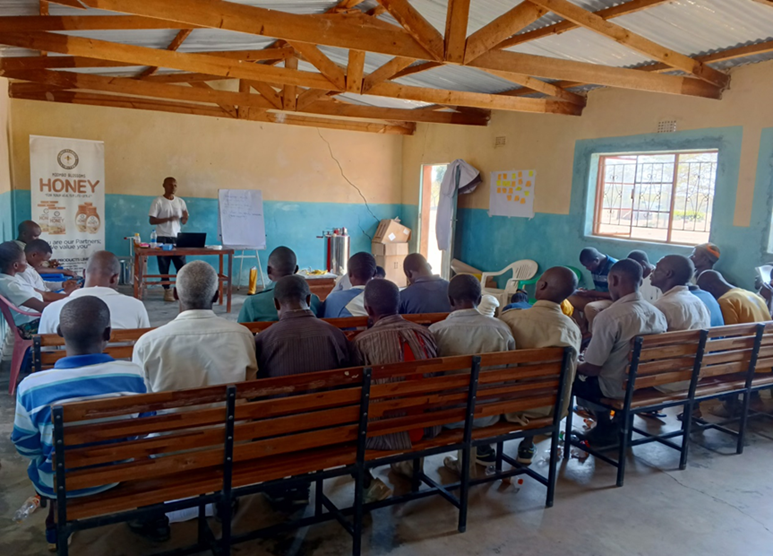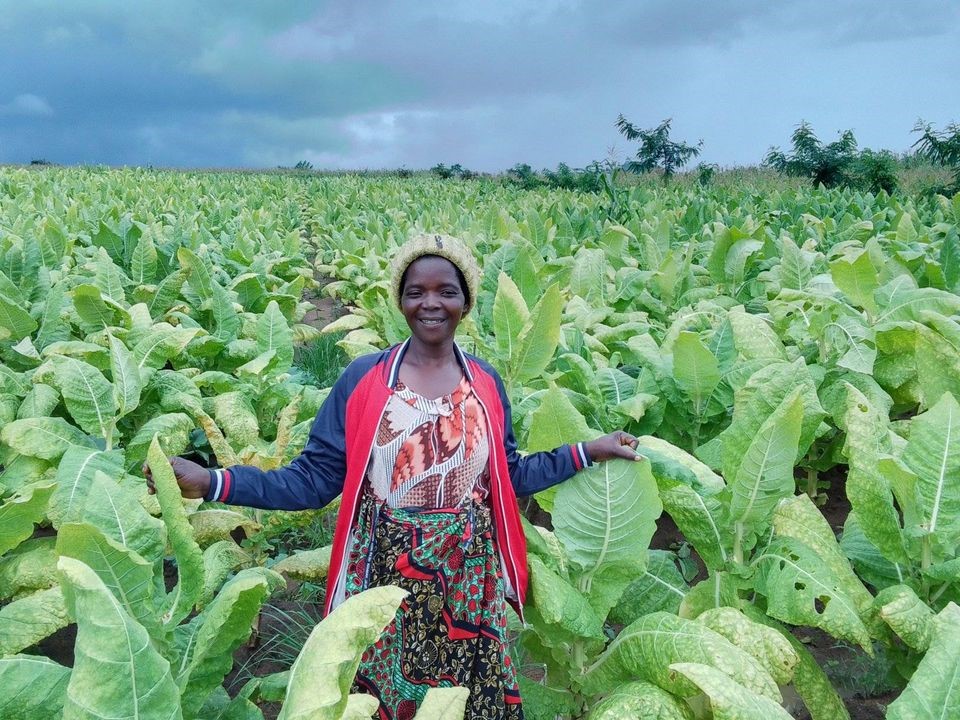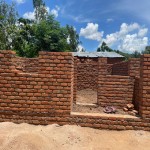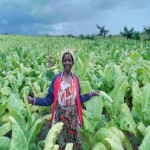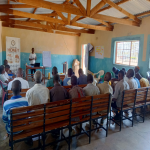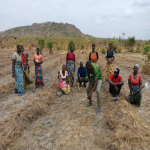As one way of restoring Dzalanyama forest cover is to ensure that the surrounding communities have sustainable livelihood away from the forest as most of them depend on the forest for their livelihood through the burning and selling of charcoal which has rendered the forest obsolete. In doing so, the project is working on empowering the communities through sustainable economic activities such as goat production and beekeeping and honey production. During this reporting period, the following activities were done to achieve this objective.
1.3.1 Goats pass on project
In November 2022, CCDR distributed 33 goats to the beneficiaries in Mbangombe community. All 33 goats were nannies.
Currently, there are 58 goats in total, which includes 51 females and 7 males. Additionally, 15 goats are expected to give birth in the next four months. From the 29 kids that have already delivered, there have been 12 instances of miscarriages. The beneficiaries have been advised by the project coordinators to take extra precautions to safeguard their goats, especially those that are inkid.
Manure Harvesting and Selling:
The beneficiaries have started to harvest manure from their goats and some have already started selling. The manure is being sold at Mk2,500 per 50kg bag. This has provided an additional source of income for the beneficiaries and their families.
Women and youth from 5 districts who received goats are managing the goats for production as well as pass on to other members of the community. Through a number of monitoring activities conducted by the team in the reporting period in 3 sites of Dowa, Chiradzulu and Lilongwe, the total number rose to 279 goats from the total 221 distributed. However, 22 have been reported dead due to various reasons making the current available goats to be 279. Many goats will be ready for pass on to other participants between March and June 2024 whereas among them 58 goats are expecting to be ready between March-June 2024.
Site
Received
Died
Available
Ready for Pass on
Expecting
Malovu/Dowa
100
19
107
17
31
Maskini
44
71
21
M’bang’ombe/Lilongwe
77
3
101
39
27
Total
221
22
279
77
58
1.3.2 Project Kraal/Khola Assessment
During one of the monitoring visits in Mbangombe, it was observed that some farmers have challenges in managing their goats during the lean period of November to April where most households experience shortage of food in Malawi. As such there were fears that some might sell their goats for household use. To avoid that the leadership suggested the project have a central kraal to keep some goats in the area until harvest time and redistribute back to the community. To do this the project planned to rent a kraal which the team visited to assess before bringing in the goats. The team assessed the Kraal/khola and it is just fine but needs minor repairs by adding more bamboos in the walls so that goats should not be halted by the gaps that are in the wall of the Kraal/khola. Otherwise the kraal/khola is fine and worthy to use because it is built in the recommended standards.
However, as no incidents of careless selling due to hunger emerged, the goats were not collected from the farmers for central keeping but rather the farmers were encouraged and reminded on the need to manage their livestock until there are more enough to starting selling for live hood improvement activities.
1.3.3 Bee keeping Training and Bee hives installation
From 11th through 15th September 2023, the project under objective 2 of improving livelihood of local communities through economic activities, conducted a Bee Keeping and Honey production trainings to project participants. The trainings were conducted in TA Masumbankhunda and Kalolo areas where 150 participants (61F, 89M) from 5 clubs were attended. Through this training, the participants learnt about beekeeping and honey production and business dynamics. The participants were taught about where and how to install bee hives, how to attract and keep bees, produce and process honey as well as market it. The bee keeping project will run for a period of one year starting from 2023 to 2024. This project is funded by Modern Cooking project and the funds are channelled through Honey Product Limited and managed by them, whereas CCDR will implement the project
150 bee hives were purchased and distributed to the 5 clubs in February 2024 (5-8th February 2024). Each club received 30 beehives, I smoker, 1 honey extractor and 3 bee suits for beekeeping and honey production.
From the 11th -15th February 2024, the clubs were guided in the installation of bee hives in their respective community forests. Currently only the brooder boxes have been installed in the forests awaiting the settling of mother bees and other bees before uploading the top box for honey production. During the installation, the participants were practically reminded on the whole bee cultivation process through demonstration. It is expected that the honey extraction process will start in 6 months’ time
